Filter by
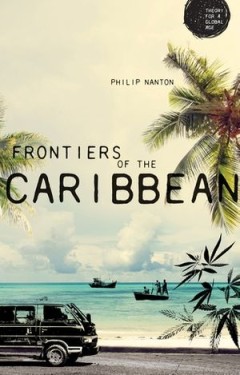
Frontiers of the Caribbean
The book argues that the frontier, usually associated with the era of colonial conquest, has great, continuing and under explored relevance to the Caribbean region. Identifying the frontier as a moral, ideational and physical boundary between what is imagined as civilization and wilderness, the book seeks to extend frontier analysis by focusing on the Eastern Caribbean multi island state of St.…
- Edition
- -
- ISBN/ISSN
- 9781526114921
- Collation
- -
- Series Title
- -
- Call Number
- -
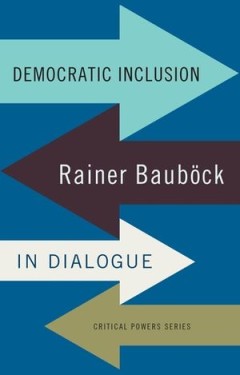
Democratic inclusion Rainer Bauböck in dialogue
This book addresses the major theoretical and practical issues of the forms of citizenship and access to citizenship in different types of polity, and the specification and justification of rights of non-citizen immigrants as well as non-resident citizens. It also addresses the conditions under which norms governing citizenship can legitimately vary. The book discusses the principles of includi…
- Edition
- -
- ISBN/ISSN
- 9781526105257
- Collation
- -
- Series Title
- -
- Call Number
- -
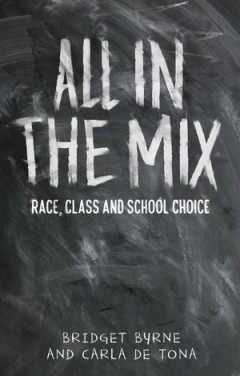
All in the mix
All in the mix: class, race and school choice considers how parents choose secondary schools for their children and makes an important intervention into debates on school choice and education. The book examines how parents talk about race, religion and class – in the process of choosing. It also explores how parents’ own racialised and classed positions, as well as their experience of educa…
- Edition
- -
- ISBN/ISSN
- 9781526139306
- Collation
- -
- Series Title
- -
- Call Number
- -
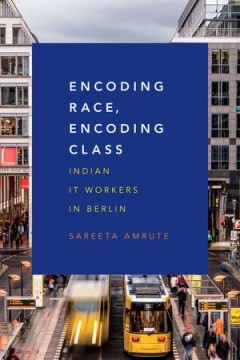
Encoding Race, Encoding Class Indian IT Workers in Berlin
In Encoding Race, Encoding Class Sareeta Amrute explores the work and private lives of highly skilled Indian IT coders in Berlin to reveal the oft-obscured realities of the embodied, raced, and classed nature of cognitive labor. In addition to conducting fieldwork and interviews in IT offices as well as analyzing political cartoons, advertisements, and reports on white-collar work, Amrute spent…
- Edition
- -
- ISBN/ISSN
- 9781478091875
- Collation
- -
- Series Title
- -
- Call Number
- -
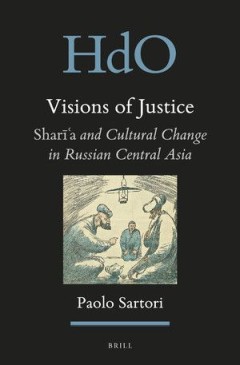
Visions of Justice Sharīʿa and Cultural Change in Russian Central Asia
Visions of Justice offers an exploration of legal consciousness among the Muslim communities of Central Asia from the end of the eighteenth century through the fall of the Russian Empire. Paolo Sartori surveys how colonialism affected the way in which Muslims formulated their convictions about entitlements and became exposed to different notions of morality. Situating his work within a range of…
- Edition
- -
- ISBN/ISSN
- 9789004330894
- Collation
- -
- Series Title
- -
- Call Number
- -
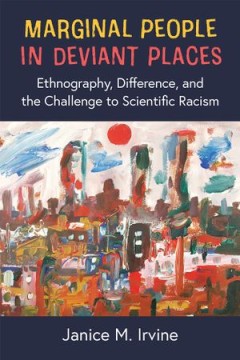
Marginal People in Deviant Places: Ethnography, Difference, and the Challenge…
Marginal People in Deviant Places revisits early- to mid-twentieth-century ethnographic studies, arguing that their focus on marginal subcultures—ranging from American hobos, to men who have sex with other men in St. Louis bathrooms, to hippies, to taxi dancers in Chicago, to elderly Jews in Venice, California—helped produce new ways of thinking about social difference more broadly in the U…
- Edition
- -
- ISBN/ISSN
- 9780472902651
- Collation
- -
- Series Title
- -
- Call Number
- 301 IRV m

Visions of Justice Sharīʿa and Cultural Change in Russian Central Asia
Visions of Justice offers an exploration of legal consciousness among the Muslim communities of Central Asia from the end of the eighteenth century through the fall of the Russian Empire. Paolo Sartori surveys how colonialism affected the way in which Muslims formulated their convictions about entitlements and became exposed to different notions of morality. Situating his work within a range of…
- Edition
- -
- ISBN/ISSN
- 9789004330894
- Collation
- -
- Series Title
- -
- Call Number
- -
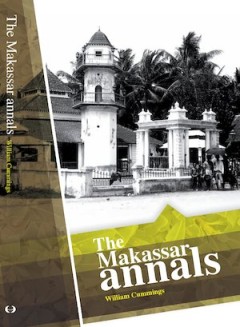
The Makassar Annals
Beginning in the 1630s, a series of annalists at the main courts of Makassar began keeping records with dated entries that recorded a wide variety of specific historical information about a wide variety of topics, including the births and deaths of notable individuals, the actions of rulers, the spread of Islam, trade and diplomacy, the built environment, ritual activity, warfare, internal poli…
- Edition
- -
- ISBN/ISSN
- 9789067183666
- Collation
- -
- Series Title
- -
- Call Number
- -

Exploring the Interior
"In this fascinating collection of essays Harvard Emeritus Professor Karl S. Guthke examines the ways in which, for European scholars and writers of the eighteenth and early nineteenth century, world-wide geographical exploration led to an exploration of the self. Guthke explains how in the age of Enlightenment and beyond intellectual developments were fuelled by excitement about what Ulrich Im…
- Edition
- -
- ISBN/ISSN
- 9781783743957
- Collation
- -
- Series Title
- -
- Call Number
- -
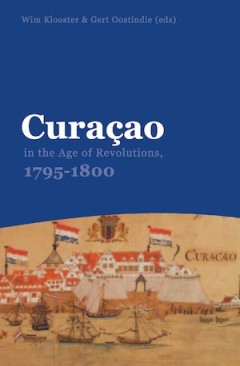
Curaçao in the Age of Revolutions, 1795-1800
From 1795 through 1800, a series of revolts rocked Curaçao, a small but strategically located Dutch colony just off the South American continent. A combination of internal and external factors produced these uprisings, in which free and enslaved islanders participated with various objectives. A major slave revolt in August 1795 was the opening salvo for these tumultuous five years. While this …
- Edition
- -
- ISBN/ISSN
- 9789067183802
- Collation
- -
- Series Title
- -
- Call Number
- -
 Computer Science, Information & General Works
Computer Science, Information & General Works  Philosophy & Psychology
Philosophy & Psychology  Religion
Religion  Social Sciences
Social Sciences  Language
Language  Pure Science
Pure Science  Applied Sciences
Applied Sciences  Art & Recreation
Art & Recreation  Literature
Literature  History & Geography
History & Geography